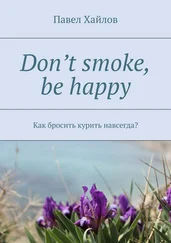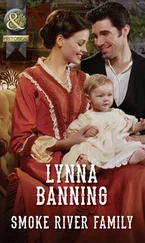Her voice is oddly soothing. It slows his heart. He answers sullenly; rises, gauges the distance between them.
“All sorts of things. Landscapes. People.”
“Describe them to me. The pictures you know from school, for instance.”
“There are only a handful. The headmaster has a few, in his study. A hunting scene, I think. Gentlemen to horse. And a coastline. Sun and water.”
“And these?”
Almost against his will he steps forward, to where picture frame hangs next to picture frame, nearly hiding the wall.
“People. Street scenes. Commoners.” It dawns on him. “The city. But—”
“Yes: but . There is no Smoke.”
Thomas looks again from picture to picture. Some of them look very old. There is a market scene, people haggling over wares, a young child stealing an apple while his brother looks on. Next to it, a village square, some sort of carnival, people dancing, drinking, rolling in the dirt. Another picture shows a soldier, studded with arrows. His tormentors surround him, faces full of hate. In yet another picture, frameless, the paint thick upon a panel of wood, Jesus hangs from his cross in between two others. Thomas has seen the scene before, in a stained-glass window of his old parish church. Golgotha. There — most vivid on clear winter mornings when the slanting sun pours warmth into the glass — dark plumes rise from the shoulders of the two thieves and their cheeks are marked with two black boils of Smoke. Here they hang as sinless as the Saviour in their midst.
“How can that be?” he asks, his eyes darting amongst pictures. He flinches when Lady Naylor steps next to him.
But he does not run away.
“There are only two explanations, aren’t there? The first is that it is a matter of artistic licence. Fantasy pictures. Outlaw artists, dreaming about a different world, hiding the Smoke. Such pictures exist and I have a few in my collection. But none are hung here.
“The truth is that all pictures used to be like this. Until a certain year. It’s hard to pinpoint exactly, but I make it 1625 or 1626. No Smoke. In not a single painting. Showing rapes, tortures, war, and execution.
“Then comes a period without pictures. Thirty, forty years, and not a single brush stroke anywhere in Europe. Perhaps nobody felt moved to paint. Or they have all been destroyed, as so many of the older ones have.
“And then, after a whole generation of silence, we finally get pictures again. Nature scenes. Creeks, mountains, storm-tossed seas. It takes another generation before anyone paints people. Gentlemen, gentlewomen — not a commoner in sight. Unless it’s a religious motif. A martyr boiled in a pot: lily-white in dun water. The men firing the pot are as black as a boot, the air dark with their filth.” She smiles. “Like the air in here, I suppose. Do you mind if I open the window?”
She turns her back, slowly, deliberately, as though to taunt him who is still holding the blunt blade of a toy dagger. It’s when he raises it to place it back onto the desk that he realises his fingers are numb. He has squeezed the life out of them. She waits, patiently, for his tongue to catch up with his feelings; like a nurse leading a sick man, waiting for him to place his foot.
“You’re saying there was a time before Smoke,” he manages at last. “But it’s impossible. All the history books—”
“Were written later. By schoolmasters. University dons. Ask my husband. He wrote books like that himself.”
“But everyone would know. They’d remember, surely. People would tell their children, and they in turn would pass it on. You can’t forget something like this.”
“Can’t you? Not even if every painting was destroyed and every book burnt? If there was not a shred of evidence to support old people’s stories? If you were taught that it’s a sin to speak the truth — and burnt at the stake if you did? Almost three hundred years, Thomas: it’s a long time. A very long time. But you are right. Some people do know. On the Continent, mostly. They weren’t as thorough there. There are a few universities with some well-guarded collections. Even a monastery, in Germany, where—”
“The Bible,” Thomas interrupts her, his voice over-loud, almost shouting. “Smoke is mentioned in the Bible. It’s everywhere. Old Testament, New Testament. Every chapter and verse. And the Bible was written in — you know. The dawn of time.”
“So it was. The dawn of time. Do you remember where Smoke is mentioned for the first time?”
“Genesis,” he answers without hesitation. “The Fall of Adam and Eve.”
“Yes — Genesis 3:7. How does it go?”
Thomas quotes: “And when the woman saw that the tree was good for food, and that it was pleasant to the eyes, and a tree to be desired to make one wise, she took of the fruit thereof, and did eat, and gave also unto her husband with her; and he did eat. And the eyes of them both were opened, and they knew that they were naked; and shame filled them, and the air grew thick with Smoke. And so they sewed fig leaves together, and made themselves aprons, and the aprons turned black with their Soot.”
“Very good! I did not know you were such a scholar. Your mother taught you, I suppose. A feisty woman, a reformer. But pious.” Lady Naylor walks over to a glass-encased shelf. She opens it, waves him closer. “I have a few Bibles here. Go on, pick one. Read me the passage.”
Thomas does as he is bidden, pulls a small, brittle book down, opens it to Genesis.
“It’s in Latin. ‘ Et aperti sunt oculi amborum cumque cognovissent esse se nudos consuerunt folia ficus et fecerunt sibi perizomata. ’”
“Translate then. You have Latin in school, don’t you? At least I hope so. I’m paying your fees.”
He stares at the words. His voice is halting, his brain numb with what isn’t there. “And opened were the eyes of both of them. And when they realised that they were naked, they joined leaves and made for themselves clothes.” He leafs back, to the book’s beginning, almost tearing the pages. The cover print incorporates a number in Roman numerals. MDLXII.
1562.
Thomas looks up, tears in his eyes.
“They changed it, the bastards.”
“Yes, they did.”
“And everything — everything! — is a lie.”
“Yes.”
She pries the book out of his hands, lays it back on the shelf, then stands facing him, at an arm’s length, reading his face. He waits until the tears have rolled down his face, wet his lips; tastes it, his sadness, finds it tinged with Soot.
“Does your daughter know all this?”
Lady Naylor’s face grows hard. It’s the first time since she’s entered that he sees it amongst her features: that other face, the person who scraped fresh Soot off a woman’s corpse.
“I told Livia a long time ago. She says it is heresy, and my research an abomination.” She laughs, draws her dressing gown tight around her body, looks scrawny for a moment, diminished, old. “My daughter tells me that if the old books were burnt then there was a good reason. That no plague comes amongst us unless God has sent it, and no dog rips out a badger’s throat without God holding the end of the leash.” Lady Naylor pauses, calms herself. “But she has not reported me yet.”
She walks over to the desk, sits down, straightens papers.
“My daughter,” she declares abruptly, “lives like she is a china doll. Holding very still. Listening into herself, stiffly, stuck in one posture. She’s waiting. Waiting for something to break, you see, and reveal a secret reservoir of Smoke: an impurity, deep in herself, that will mark her as a sinner. You saw how she was at dinner. She tried to laugh, once or twice. But she isn’t sure how. And whether it’s allowed.” Lady Naylor waves a hand, as though to dispel the thought like a bad smell. “Enough about Livia. She’s made her own bed. How about you? What will you do, now that you know?”
Читать дальше












